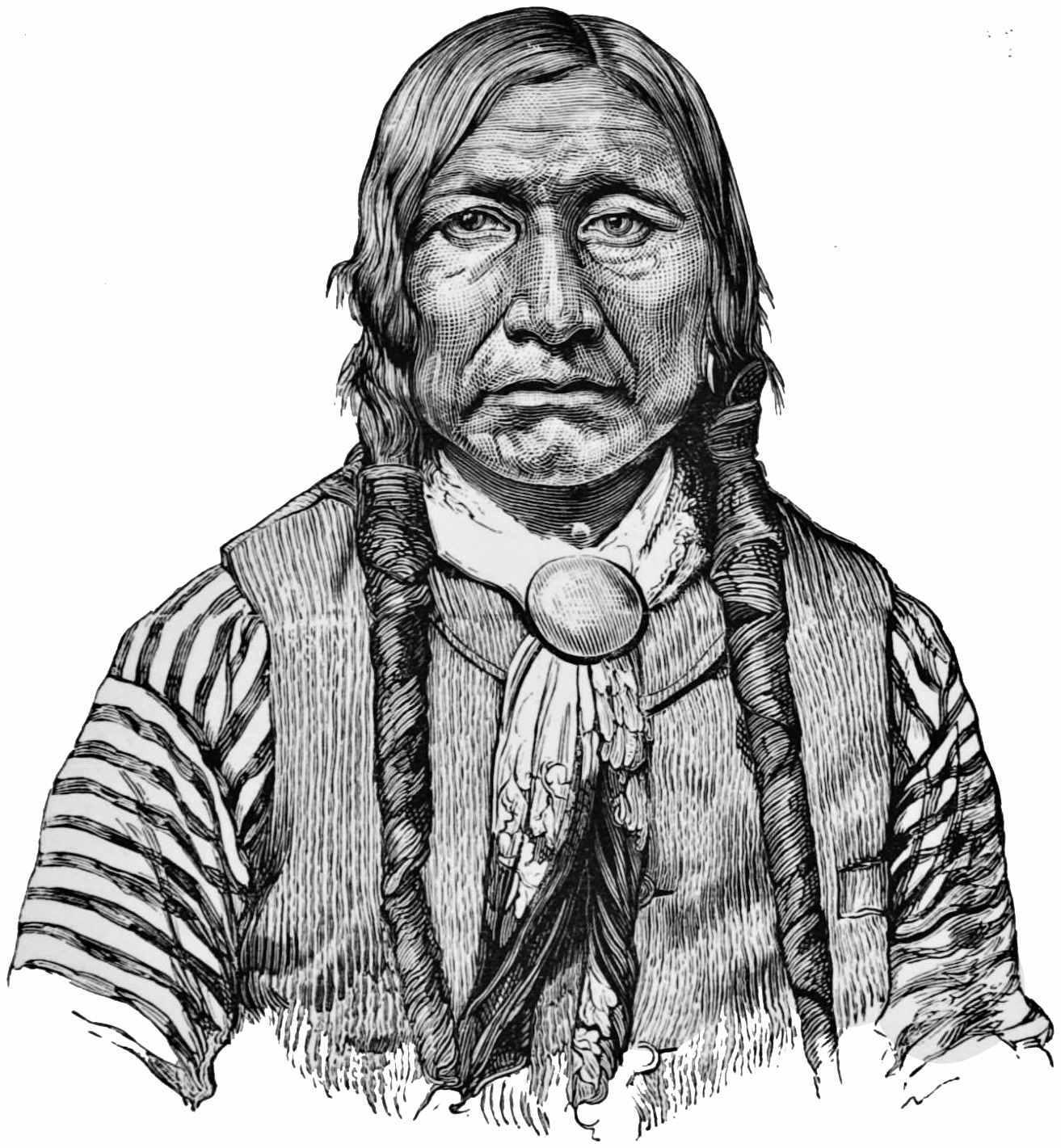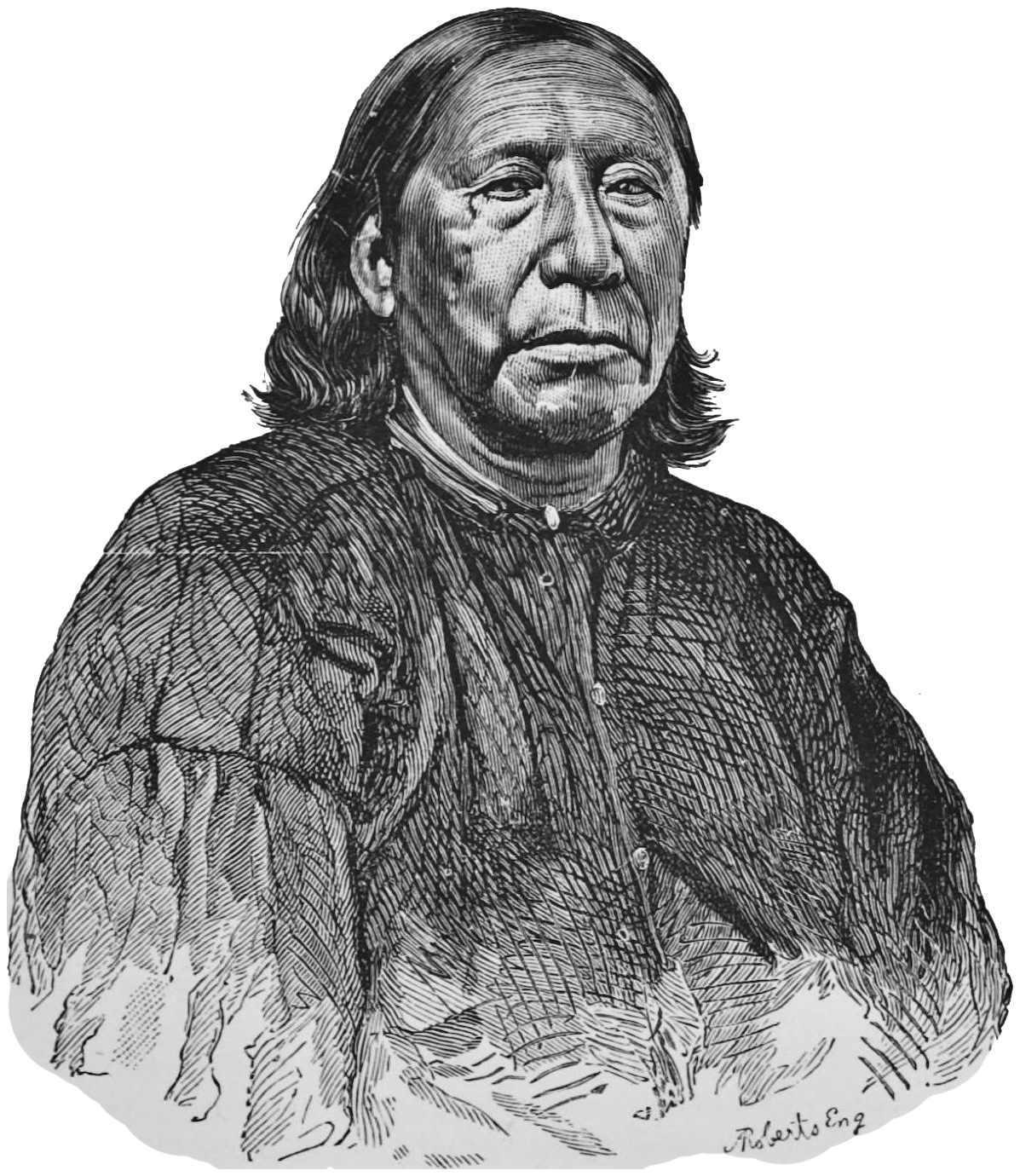Urinary
Renal Abscess
Epididymitis, Orchitis, Prostatic Infection
20. Infections of Pregnancy
Complications of Infection in Pregnancy: Overview
Coxiella burnetii
Listeriosis
Streptococcus agalactiae
Syphilis
Toxoplasmosis
Trypanosoma cruzi (Chagas Disease)
Measles
Parvovirus B19
Rubella
Zika
Cytomegalovirus (CMV)
Herpes Simplex Virus (HSV)
Varicella-Zoster Virus (VZV)
Hepatitis B (HBV)
Human Immunodeficiency Virus (HIV)
Other Infections in Pregnancy with Adverse Maternal Outcome
21. Sexually Transmitted Infections
Definitions
Neisseria gonorrhoeae
Mycoplasma genitalium
Bacterial Vaginosis
Other Causes of Vaginitis
Genital Ulcers
Herpes Simplex Virus Type 2 (and Type 1)
Haemophilus ducreyi (Chancroid)
Donovanosis (granuloma inguinale)
Lipschutz Ulcer
Human Papillomavirus (HPV)
Other Pathogens Which May be Sexually Transmitted
Hepatitis B
Hepatitis C
Enteric Pathogens
22. Hepatitis Viruses
Clinical Presentation of Hepatitis
Hepatitis A (HAV)
Hepatitis B (HBV)
Hepatitis C (HCV) (Fig. 22.3)
Hepatitis D
Hepatitis E (Fig. 22.6)
Other Infection-related Hepatic Conditions 23. Viral Exanthems and Vaccine-Preventable
Parvovirus B19
Enterovirus
Measles
Rubella
Varicella-Zoster Virus (VZV)
Human Herpes Virus 6 and 7
Other Viral Exanthems
24. Disease Due to Spirochetes, Excluding Syphilis
Spirochetes
Endemic Treponematoses
Leptospirosis
Relapsing Fevers
Lyme Borreliosis (Lyme Disease)
25. Skin and Soft Tissue Infections and Toxin-Mediated Diseases
General Principles
Major Skin and Soft Tissue Infections
Folliculitis
Furuncles and Carbuncles
Erysipelas
Cellulitis
Necrotizing Soft Tissue Infection
Pyomyositis
Clostridial Myonecrosis
Skin and Soft Tissue Infections Encountered in Unique Clinical Situations (Table 25.2)
Animal Bite Infections
Infections After Traumatic Injury
Infections Associated With Burn Injury
Surgical Site Infections
Other Organism-Specific Skin and Soft Tissue Infections
Erysipelothrix Infection
Herpes Zoster
Dermatophytosis
Sporotrichosis
Differential Diagnoses for Organism-Specific Ssti BASED on Skin Lesion Characteristics (Table 25.3)
26. Bone and Joint Infections
Diabetic Foot Infections and Associated Osteomyelitis
Septic Arthritis
Vertebral Osteomyelitis
Prosthetic Joint Infections (PJI)
27. Infections Caused by Yeasts and Yeast-Like Fungi
Cryptococcosis
Pneumocystis
Candidiasis
Other Yeasts
28. The Dimorphic Mycoses
Definitions
Another random document with no related content on Scribd:
with the power and purpose of the Government to inflict punishment upon all who chose to make war; and each tribe, dreading a repetition of the blow upon themselves, had removed their villages to remote points where they deemed themselves secure from further chastisement. Having Lone Wolf and Satanta, the two leading chiefs of the Kiowas, in our hands, we thought that through them the Kiowas could be forced to a compliance with the just and reasonable demands of the Government, and with the terms of their treaty providing for the reservation system.
All demands upon the Kiowas were communicated by me to Lone Wolf and Satanta, under the instructions of General Sheridan, who, although on the ground, declined to treat directly with the faithless chiefs. The Kiowas were informed that unless the entire tribe repaired to the vicinity of the agency, then located not far from Fort Cobb, the war, which had been inaugurated with such vigor and effect at the Washita, would be renewed and continued until the terms of their treaty had been complied with. This proposition was imparted to Lone Wolf and Satanta, and by them transmitted to their tribe, through the son of the latter, who acted as a sort of diplomatic courier between the Kiowa village and our camp.
The Kiowas, while sending messages apparently in accord with the proposition, and seeming to manifest a willingness to come in and locate themselves upon their reservation, continued, after the manner of Indian diplomacy, to defer from time to time the promised movement. There was every reason to believe that, finding the military disposed to temporarily suspend active operations, and resort to negotiation, the Kiowas had located their village within a short distance of our camp, as Satanta’s son, in going and coming with messages from one to the other, easily made the round journey in a single day; so that had they been so disposed, the Kiowas could have transferred their village to our immediate vicinity, as desired by the military authorities, in one day. The truth was, however, that while manifesting an apparent desire to conform to this requirement, as a precedent to final peace, they had not intended at any time to keep faith with the Government, but, by a pretended acquiescence
in the proposed arrangement, secure the release of the two head chiefs, Lone Wolf and Satanta, and then hasten, with the entire village, to join forces with the other two tribes, the Cheyennes and Arapahoes, who were then represented as being located somewhere near the source of Red river, and on the border of the Llano Estacado, or Staked Plain, a region of country supposed to be impenetrable by civilized man. Every promise of the Kiowas to come in was always made conditional upon the prior release of Lone Wolf and Satanta.
Their efforts to procrastinate or evade a fulfilment of their part of the agreement finally exhausted the forbearance which thus far had prompted none but the mildest measures on the part of the military authorities, in the efforts of the latter to bring about a peaceful solution of existing difficulties. It had become evident that, instead of intending to establish relations of permanent peace and friendship with the whites, the majority of the tribe were only waiting the release of Lone Wolf and Satanta to resume hostilities, or at least to more firmly ally themselves with the extremely hostile tribes then occupying the head waters of Red river.
Spring was approaching, when the grass would enable the Indians to recuperate their ponies, which, after the famished condition to which winter usually reduced them, would soon be fleet and strong, ready to do duty on the war path. It was therefore indispensable that there should be no further delay in the negotiations, which had been needlessly prolonged through several weeks. General Sheridan promptly decided upon the terms of his ultimatum. Like most of the utterances of that officer, they were brief and to the point. I remember the day and the circumstances under which they were given. The General and myself were standing upon opposite sides of a rude enclosure which surrounded the space immediately about his tent, composed of a single line of rough poles, erected by the unskilled labor of some of the soldiers. The day was one of those bright, warm, sunshiny days so frequent in the Indian Territory, even in winter. I had left my tent, which was but a few paces from that of General Sheridan, to step over and report, as I
did almost daily, the latest message from the Kiowas as to their intention to make peace. On this occasion, as on all former ones, there was a palpable purpose to postpone further action until Lone Wolf and Satanta should be released by us. After hearing the oftrepeated excuses of the Kiowas, General Sheridan communicated his resolve to me in substance as follows: “Well, Custer, these Kiowas are endeavoring to play us false. Their object is to occupy us with promises until the grass enables them to go where they please and make war if they choose. We have given them every opportunity to come in and enjoy the protection of the Government, if they so desired. They are among the worst Indians we have to deal with, and have been guilty of untold murders and outrages, at the same time they were being fed and clothed by the Government. These two chiefs, Lone Wolf and Satanta, have forfeited their lives over and over again. They could now induce their people to come in and become friendly if they chose to exert their influence in that direction. This matter has gone on long enough, and must be stopped, as we have to look after the other tribes before spring overtakes us. You can inform Lone Wolf and Satanta that we shall wait until sundown to-morrow for their tribe to come in; if by that time the village is not here, Lone Wolf and Satanta will be hung, and the troops sent in pursuit of the village.”
This might be regarded as bringing matters to a crisis. I proceeded directly to the lodge in which Lone Wolf and Satanta were prisoners, accompanied by Romeo as interpreter. I found the two chiefs reclining lazily upon their comfortable, if not luxurious couches of robes. Satanta’s son was also present. After a few preliminary remarks, I introduced the subject which was the occasion of my visit, by informing the chiefs that I had just returned from General Sheridan’s tent, where the question of the failure of the Kiowas to comply with their oft-repeated promises had been discussed, and that I had been directed to acquaint them with the determination which had been formed in regard to them and their people. At this announcement I could see that both chiefs became instantly and unmistakably interested in what was being said.
I had so often heard of the proverbial stoicism of the Indian character, that it occurred to me that this was a favorable moment for judging how far this trait affects their conduct. For it will be readily acknowledged that the communication which I was about to make to them was one likely, at all events, to overturn any selfimposed stolidity which was not deeply impregnated in their nature. After going over the subject of the continued absence of the Kiowas from their reservation, their oft-made promises, made only to be violated, I told them that they were regarded, as they had a right to be, as the two leading and most influential chiefs of the tribe; that although they were prisoners, yet so powerful were they among the people of their own tribe, that their influence, even while prisoners, was greater than that of all the other chiefs combined; hence all negotiations with the Kiowas had been conducted through them, and although they had it in their power, by a single command, to cause a satisfactory settlement of existing difficulties to be made, yet so far they had failed utterly to exert an influence for peace between their people and the Government. The announcement then to be made to them must be regarded as final, and it remained with them alone to decide by their action what the result should be. In as few words as possible I then communicated to them the fate which undoubtedly awaited them in the event of the non-appearance of their tribe. Until sunset of the following day seemed a very brief period, yet I failed to detect the slightest change in the countenance of either when told that that would be the extent of their lives if their tribe failed to come in. Not a muscle of their warrior-like faces moved. Their eyes neither brightened nor quailed; nothing in their actions or appearance gave token that anything unusual had been communicated to them. Satanta’s son alone of the three seemed to realize that matters were becoming serious, as could readily be told by watching his anxious glances, first at his father, then at Lone Wolf; but neither spoke.
Realizing the importance of time, and anxious to bring about a peaceful as well as satisfactory termination of our difficulties with the Kiowas, and at the same time to afford every facility to the two
captive chiefs to save their oft-forfeited lives—for all familiar with their bloody and cruel career would grant that they merited death—I urged upon them the necessity of prompt action in communicating with their tribe, and pointed to Satanta’s son, who could be employed for this purpose. Quickly springing to his feet, and not waiting to hear the opinions of the two chiefs, the young warrior rushed from the lodge, and was soon busily engaged in tightening the girths of his Indian saddle, preparatory to a rapid gallop on his fleet pony.
In the mean time Lone Wolf and Satanta began exchanging utterances, at first slow and measured, in tones scarcely audible. Gradually they seemed to realize how desperate was the situation they were in, and how much depended upon themselves. Then laying aside the formality which had up to that moment characterized their deportment, they no longer appeared as the dignified, reserved, almost sullen chiefs, but acted and spoke as would be expected of men situated as they were. In less time than I have taken to describe the action, Satanta’s handsome son appeared at the entrance of the lodge, mounted and in readiness for his ride. Although he seemed by his manner to incline toward his father as the one who should give him his instructions, yet it was soon apparent that a more correct understanding existed between the two captives. Lone Wolf was the head chief of their tribe, Satanta the second in rank. The occasion was too important to leave anything to chance. A message from Satanta might receive prompt attention; a command from the head chief could not be disregarded; hence it was that Satanta stood aside, and Lone Wolf stepped forward and addressed a few hasty but apparently emphatic sentences to the young courier, who was all eagerness to depart on his mission. As Lone Wolf concluded his instructions, and the young warrior was gathering up his reins and lariat, and turning his pony from the lodge in the direction of the village, Satanta simply added, in an energetic tone, “Hoodle-teh, hoodle-teh” (make haste, make haste); an injunction scarcely needed, as the young Indian and his pony were the next moment flying across the level plain.
I then reëntered the lodge with Lone Wolf and Satanta, accompanied by Romeo. Through the latter Lone Wolf informed me that he had sent orders to the Kiowa village, which was not a day’s travel from us, to pack up and come in as soon as the courier should reach them. At the same time he informed them of what depended upon their coming. He had also sent for Black Eagle, the third chief in rank, to come in advance of the village, bringing with him a dozen or more of the prominent chiefs. I inquired if he felt confident that his people would arrive by the appointed time? He almost smiled at the question, and assured me that an Indian would risk everything to save a comrade, leaving me to infer that to save their two highest chiefs nothing would be permitted to stand in the way. Seeing, perhaps, a look of doubt on my face, he pointed to that locality in the heavens which the sun would occupy at two o’clock, and said, “Before that time Black Eagle and the other chiefs accompanying him will be here; and by that time,” indicating in a similar manner sunset, “the village will arrive.”
No general commanding an army, who had transmitted his orders to his corps commanders, directing a movement at daylight the following morning, could have exhibited more confidence in the belief that his orders would be executed, than did this captive chief in the belief that, although a prisoner in the hands of his traditional enemies, his lodge closely guarded on all sides by watchful sentinels, his commands to his people would meet with a prompt and willing compliance. After a little further conversation with the two chiefs, I was preparing to leave the lodge, when Lone Wolf, true to the Indian custom, under which an opportunity to beg for something to eat is never permitted to pass unimproved, called me back, and said that the next day his principal chiefs would visit him, and although he was a prisoner, yet he would be glad to be able to entertain them in a manner befitting his rank and importance in the tribe, and therefore I was appealed to to furnish the provisions necessary to provide a feast for a dozen or more hungry chiefs and their retainers; in reply to which modest request I made the heart of Lone Wolf glad, and called forth, in his most emphatic as well as delighted
manner, the universal word of approval, “How,” by informing him that the feast should certainly be prepared if he only would supply the guests.
The next day was one of no little interest, and to none more than to the two chiefs, who expected to see the first step taken by their people which would terminate in their release from a captivity which had certainly become exceedingly irksome, not to mention the new danger which stared them in the face. Lone Wolf, however, maintained his confidence, and repeatedly assured me during the forenoon that Black Eagle and the other chiefs, whom he had sent for by name, would arrive not later than two o’clock that day. His confidence proved not to be misplaced. The sun had hardly marked the hour of one in the heavens, when a small cavalcade was seen approaching in the distance from the direction of the Kiowa village. The quick eye of Satanta was the first to discover it. A smile of haughty triumph lighted up the countenance of Lone Wolf when his attention was called to the approaching party, his look indicating that he felt it could not be otherwise: had he not ordered it?
On they came, first about a dozen chiefs, riding at a deliberate and dignified pace, they and their ponies richly caparisoned in the most fantastic manner. The chiefs wore blankets of bright colors, scarlet predominating, with here and there a bright green. Each face was painted in brilliant colors, yellow, blue, green, red, black, and combinations of all of them, no two faces being ornamented alike, and each new face seeming more horrible than its predecessor. The ponies had not been neglected, so far as their outward make-up was concerned, eagle feathers and pieces of gaudy cloth being interwoven in their manes and tails. Following the chiefs rode a second line, only less ornamented than the chiefs themselves. These were warriors and confidential friends and advisers of the chiefs in whose train they rode. In rear of all rode a few meek-looking squaws, whose part in this imposing pageant became evident when the chiefs and warriors dismounted, giving the reins of their ponies to the squaws, who at once busied themselves in picketing the ponies of their lords, and, in every sense of the word, masters,
wherever the grazing seemed freshest and most abundant. This being done, their part was performed, and they waited, near the ponies, the return of the chiefs and warriors. The latter, after forming in one group, and in similar order to that in which they rode, advanced toward the lodge outside of which, but within the chain of sentinels, stood Lone Wolf and Satanta. The meeting between the captive chiefs and their more fortunate comrades occasioned an exhibition of more feeling and sensibility than is generally accredited to the Indian. A bevy of school girls could not have embraced each other, after a twenty-four hours’ separation, with greater enthusiasm and demonstrations of apparent joy than did these chieftains, whose sole delight is supposed to be connected with scenes of bloodshed and cruelty. I trust no gentle-minded reader, imbued with great kindness of heart, will let this little scene determine his estimate of the Indian character; for be it understood, not one of the chiefs who formed the group of which I am writing but had participated in acts of the most barbarous and wanton cruelty. It was a portion of these chiefs who had led and encouraged the band that had subjected the Box family to such a horrible fate, of which Major-General Hancock made full report at the time.
Immediately after greetings had been exchanged between the captives and their friends, I was requested, by a message from Lone Wolf, to repair to his lodge in order to hear what his friends had to say. As I entered the lodge the entire party of chiefs advanced to meet me, and began a series of hand-shaking and universal “Hows,” which in outward earnestness made up for any lack of real sincerity, and to an inexperienced observer or a tender-hearted peace commissioner might well have appeared as an exhibition of indubitable friendship if not affection. After all were seated, and the ever-present long red clay pipe had passed and repassed around the circle, each chief indulging in a few silent whiffs, Black Eagle arose, and after shaking hands with me, proceeded, after the manner of an oration, to inform me, what I had had reason to expect, and what the reader no doubt has also anticipated, that the entire Kiowa village was at that moment on the march, and would arrive in the
vicinity of our camp before dark. No reference was made to the fact that this general movement on their part was one of compulsion, but on the contrary, to have heard Black Eagle, who was an impressive orator, one might well have believed that, no longer able to endure the separation from their brothers, the white men, who, as Black Eagle said, like themselves were all descended from one father, the Kiowas had voluntarily resolved to pack up their lodges, and when they next should put them down it would be alongside the tents of their white friends.
In nothing that was said did it appear that the impending execution of Lone Wolf and Satanta had aught to do with hastening the arrival of their people. At the termination of the conference, however, Black Eagle intimated that as the tribe was about to locate near us, it would be highly agreeable to them if their two head chiefs could be granted their liberty and permitted to resume their places among their own people.
That evening the Kiowa village, true to the prediction of Lone Wolf, arrived, and was located a short distance from our camp. The next morning the family or families of Satanta appeared in front of headquarters and made known their desire to see Satanta, to which, of course, no objection was made, and the guards were instructed to permit them to pass the lines. Satanta’s home circle was organized somewhat on the quadrilateral plan; that is, he had four wives. They came together, and, so far as outward appearances enabled one to judge, they constituted a happy family. They were all young and buxom, and each was sufficiently like the others in appearance to have enabled the lot to pass as sisters; and, by the way, it is quite customary among the Indians for one man to marry an entire family of daughters as rapidly as they reach the proper age. To those who dread a multiplicity of mothers-in-law this custom possesses advantages. To add in a material as well as maternal way to the striking similarity in appearance presented by Satanta’s dusky spouses, each bore on her back, encased in the capacious folds of a scarlet blanket, a pledge of affection in the shape of a papoose, the difference in the extreme ages of the four miniature warriors, or
warriors’ sisters, being too slight to be perceptible. In single file the four partners of Satanta’s joys approached his lodge, and in the same order gained admittance. Satanta was seated on a buffalo robe when they entered. He did not rise—perhaps that would have been deemed unwarriorlike—but each of his wives advanced to him, when, instead of going through the ordinary form of embracing, with its usual accompaniments, on such occasions considered proper, the papoose was unslung—I know of no better term to describe the dexterous manner in which the mother transferred her offspring from its cosey resting-place on her back to her arms—and handed to the outstretched arms of the father, who kissed it repeatedly, with every exhibition of paternal affection, scarcely deigning to bestow a single glance on the mother, who stood by meekly, contenting herself with stroking Satanta’s face and shoulders gently, at the same time muttering almost inaudible expressions of Indian endearment. This touching little scene lasted for a few moments, when Satanta, after bestowing a kiss upon the soft, cherry lips of his child, transferred it back to its mother, who passed on and quietly took a seat by Satanta’s side. The second wife then approached, when precisely the same exhibition was gone through with, not being varied from the first in the slightest particular. This being ended, the third took the place of the second, the latter passing along with her babe and seating herself next to the first, and so on, until the fourth wife had presented her babe, received it back, and quietly seated herself by the side of the third; not a word being spoken to or by Satanta from the beginning to the end of this strange meeting.
The Kiowas were now all located on their reservation except a single band of the tribe, led by a very wicked and troublesome chief, named Woman Heart, although his conduct and character were anything but in keeping with the gentleness of his name. He had taken his band and moved in the direction of the Staked Plains, far to the west of the Kiowa reservation.
However, the Indian question, so far as the Kiowas were concerned, was regarded as settled, at least for the time being, and
it became our next study how to effect a similar settlement with the Cheyennes and Arapahoes, who had tied after the battle of the Washita, and were then supposed to be somewhere between the Witchita mountains and the western border of Texas, north of the head waters of Red river. It was finally decided to send one of the friendly chiefs of the Apaches, whose village was then near the present site of Fort Sill, and one of the three captive squaws whom we had brought with us.
All the chiefs of that region who were interested in promoting peace between the whites and Indians were assembled at my headquarters, when I informed them of the proposed peace embassy, and asked that some chief of prominence should volunteer as bearer of a friendly message to the Cheyennes and Arapahoes. A well-known chief of the Apaches, named Iron Shirt, promptly offered himself as a messenger in the cause of peace. In reply to my inquiry, he said he could be ready to depart upon his commendable errand the following day, and estimated the distance such that it would be necessary to take provision sufficient to last him and his companion three weeks. Having arranged all the details of the journey, the assemblage of chiefs dispersed, the next step being to decide which of the three squaws should accompany Iron Shirt to her tribe. I concluded to state the case to them, and make the selection a matter for them to decide. Summoning Mah-wis-sa, Mo-nah-see-tah, and the Sioux squaw, their companion, to my tent, I, through Romeo, acquainted them with the desire of the Government to establish peace with their people and with the Arapahoes, and in order to accomplish this we intended despatching a friendly message to the absent tribes, which must be carried by some of their own people. After conferring with each other a few minutes, they concluded that Mah-wis-sa, the sister of Black Kettle, should return to her people. Every arrangement was provided, looking to the comfort of the two Indians who were to undertake this long journey. A bountiful supply of provisions was carefully provided in convenient packages, an extra amount of clothing and blankets being given to Mah-wis-sa in order that she should not return to her people empty-
handed. To transport their provisions and blankets a mule was given them to be used as a pack-animal. It was quite an event, sufficient to disturb the monotony of camp, when the hour arrived for the departure of the two peace commissioners. I had told Iron Shirt what he was to say to the chiefs of the tribes who still remained hostile, which was in effect that we were anxious for peace, and to that end invited them to come at once and place themselves and their people on the reservations, where we would meet and regard them as friends, and all present hostilities, as well as reckoning for past differences, should cease; but if this friendly proffer was not accepted favorably and at once, we would be forced to regard it as indicating their desire to prolong the war, in which event the troops would be sent against them as soon as practicable. I relied not a little on the good influence of Mah-wis-sa, who, as I have before stated, was a woman of superior intelligence, and was strongly impressed with a desire to aid in establishing a peace between her people and the white men. Quite a group, composed of officers, soldiers, teamsters, guards, and scouts, assembled to witness the departure of Iron Shirt and Mah-wis-sa, and to wish them God-speed in their mission.
After Iron Shirt and Mah-wis-sa had seated themselves upon their ponies and were about to set out, Mah-wis-sa, suddenly placing her hand on the neat belt which secured her blanket about her, indicated that she was unprovided with that most essential companion of frontier life, a mutch-kaas she expressed it, meaning a hunting-knife. Only those who have lived on the plains can appreciate the unpurchasable convenience of a hunting-knife. Whether it is to carve a buffalo or a mountain trout, mend horse equipments, or close up a rent in the tent, there is a constant demand for the services of a good hunting-knife. Mah-wis-sa smiled at the forgetfulness which had made her fail to discern this omission sooner, but I relieved her anxiety by taking from my belt the hunting-knife which hung at my side and giving it to her, adding as I did so that I expected her to return it to me before the change in the moon, that being fixed as the extreme limit of their absence.
When all was ready for the start, Iron Shirt rode first, followed by the pack-mule, which he led, while Mah-wis-sa, acting as a driver to the latter and well mounted, brought up the rear.
As they rode away amid the shower of good wishes which was bestowed upon them and their mission, many were the queries as to the probable extent of their journey, their return, and whether they would be successful. For upon the success or failure of these two Indians depended in a great measure the question whether or not we were to be forced to continue the war; and among the hundreds who watched the departing bearers of the olive branch, there was not one but hoped earnestly that the mission would prove successful, and we be spared the barbarities which a further prosecution of the war would necessarily entail. Yet there are those who would have the public believe that the army is at all times clamorous for an Indian war. I have yet to meet the officer or man belonging to the army, who, when the question of war or peace with the Indians was being agitated, did not cast the weight of his influence, the prayers of his heart, in behalf of peace. When I next called Mah-wis-sa’s attention to the mutch-ka(knife), it was far from the locality we then occupied, and under very different circumstances.
After the departure of Iron Shirt and Mah-wis-sa, we were forced to settle down to the dullest routine of camp life, as nothing could be done until their return. It was full three weeks before the interest in camp received a fresh impetus, by the tidings, which flew from tent to tent, that Iron Shirt had returned. He did return, but Mahwis-sa did not return with him. His story was brief. He and Mah-wissa, after leaving us and travelling for several days westward, had arrived at the Cheyenne and Arapaho villages. They delivered their messages to the chiefs of the two tribes, who were assembled in council to hear them, and after due deliberation thereon, Iron Shirt was informed that the distance was too great, the ponies in too poor condition, to permit the villages to return. In other words, these two tribes had virtually decided that rather than return to their reservation they preferred the chances of war. When asked to
account for Mah-wis-sa’s failure to accompany him back, Iron Shirt stated that she had desired to fulfil her promise and return with him, but the chiefs of her tribe would not permit her to do so.
The only encouragement derived from Iron Shirt was in his statement that Little Robe, a prominent chief of the Cheyennes, and Yellow Bear, the second chief of the Arapahoes, were both extremely anxious to effect a permanent peace between their people and the Government, and both had promised Iron Shirt that they would leave their villages soon after his departure and visit us, with a view to prevent a continuation of the war. Iron Shirt was rewarded for his journey by bountiful presents of provisions for himself and his people. True to their promises made to Iron Shirt, it was but a short time before Little Robe and Yellow Bear arrived at our camp and were well received.
CHIEF
They reported that their villages had had under consideration the question of accepting our invitation to come in and live at peace in the future, and that many of their people were strongly in favor of adopting this course, but for the present it was uncertain whether or not the two tribes would come in. The two tribes would probably act in concert, and if they intended coming, would make their determination known by despatching couriers to us in a few days. In spite of the sincerity of the motives of Little Robe and Yellow Bear, whom I have always regarded as two of the most upright and peaceably inclined Indians I have ever known, and who have since that time paid a visit to the President at Washington, it was evident that the Cheyennes and Arapahoes, while endeavoring to occupy us with promises and pretences, were only interested in delaying our
YELLOW BEAR, SECOND
OF THE ARAPAHOES.
movements until the return of spring, when the young grass would enable them to recruit the strength of their winter-famished ponies and move when and where they pleased.
After waiting many long weary days for the arrival of the promised couriers from the two tribes, until even Little Robe and Yellow Bear were forced to acknowledge that there was no longer any reason to expect their coming, it occurred to me that there was but one expedient yet untried which furnished even a doubtful chance of averting war. This could only be resorted to with the approval of General Sheridan, whose tent had been pitched in our midst during the entire winter, and who evidently proposed to remain on the ground until the Indian question in that locality should be disposed of. My plan was as follows:
We had some fifteen hundred troops, a force ample to cope with all the Indians which could then, or since, be combined at any one point on the plains. But in the state of feeling existing among those Indians at that time, consequent upon the punishment which they had received at and since the Washita campaign, it would have been an extremely difficult if not impracticable matter to attempt to move so large a body of troops near their villages, and retain the latter in their places, so fearful were they of receiving punishment for their past offences. It would also have been impracticable to move upon them stealthily, as they were then, for causes already given, more than ever on the alert, and were no doubt kept thoroughly informed in regard to our every movement.
It was thus considered out of the question to employ my entire command of fifteen hundred men in what I proposed should be purely a peaceful effort to bring about a termination of the war, as so large a force would surely intimidate the Indians, and cause them to avoid our presence.
I believed that if I could see the leading chiefs of the two hostile tribes and convince them of the friendly desire of the Government, they might be induced to relinquish the war and return to their reservation. I have endeavored to show that I could not go among
them with my entire command, neither was I sufficiently orthodox as a peace commissioner to believe what so many of that order preach, but fail to practise, that I could take an olive branch in one hand, the plan of a school-house in the other, and, unaccompanied by force, visit the Indian villages in safety. My life would certainly have been the price of such temerity. Too imposing a force would repel the Indians; too small a force would tempt them to murder us, even though our mission was a friendly one.
After weighing the matter carefully in my own mind, I decided that with General Sheridan’s approval I would select from my command forty men, two officers, and a medical officer, and, accompanied by the two chiefs, Little Robe and Yellow Bear, who regarded my proposition with favor, I would set out in search of the hostile camp, there being but little doubt that with the assistance of the chiefs I would have little difficulty in discovering the whereabouts of the villages; while the smallness of my party would prevent unnecessary alarm or suspicion as to our intentions. From my tent to General Sheridan’s was but a few steps, and I soon submitted my proposition to the General, who from the first was inclined to lend his approval to my project. After discussing it fully, he gave his assent by saying that the character of the proposed expedition was such that he would not order me to proceed upon it, but if I volunteered to go, he would give me the full sanction of his authority and every possible assistance to render the mission a successful one; in conclusion urging me to exercise the greatest caution against the stratagems or treachery of the Indians, who no doubt would be but too glad to massacre my party in revenge for their recent well-merited chastisement. Returning to my tent, I at once set about making preparations for my journey, the extent or result of which now became interesting subjects for deliberation. The first thing necessary was to make up the party which was to accompany me.
As the number of men was to be limited to forty, too much care could not be exercised in their selection. I chose the great majority of them from the sharpshooters, men who, in addition to being cool
and brave, were experienced and skilful marksmen. My standardbearer, a well-tried sergeant, was selected as the senior noncommissioned officer of the party. The officers who were to accompany me were my brother Colonel Custer, Captain Robbins, and Dr. Renick, Acting Assistant Surgeon U. S. Army. As guide I had Ne-va, a Blackfoot Indian, who had accompanied General Fremont in his explorations, and who could speak a little English. Little Robe and Yellow Bear were also to be relied upon as guides, while Romeo accompanied us as interpreter. Young Brewster, determined to miss no opportunity of discovering his lost sister, had requested and been granted permission to become one of the party. This completed the personnelof the expedition. All were well armed and well mounted. We were to take no wagons or tents; our extra supplies were to be transported on pack-mules. We were to start on the evening of the second day, the intervening time being necessary to complete our preparations. It was decided that our first march should be a short one, sufficient merely to enable us to reach a village of friendly Apaches, located a few miles from our camp, where we would spend the first night and be joined by Little Robe and Yellow Bear, who at that time were guests of the Apaches. I need not say that in the opinion of many of our comrades our mission was regarded as closely bordering on the imprudent, to qualify it by no stronger term.
So confident did one of the most prudent officers of my command feel in regard to our annihilation by the Indians, that in bidding me good-by he contrived to slip into my hand a small pocket Derringer pistol, loaded, with the simple remark, “You had better take it, General; it may prove useful to you.” As I was amply provided with arms, both revolvers and rifle, and as a pocket Derringer may not impress the reader as being a very formidable weapon to use in Indian warfare, the purpose of my friend in giving me the small pocket weapon may not seem clear. It was given me under the firm conviction that the Indians would overwhelm and massacre my entire party; and to prevent my being captured, disarmed, and reserved for torture, that little pistol was given me in
order that at the last moment I might become my own executioner— an office I was not seeking, nor did I share in my friend’s opinion.
Everything being ready for our departure, we swung into our saddles, waved our adieus to the comrades who were to remain in camp, and the next moment we turned our horses’ heads westward and were moving in the direction of the Apache village.
XX.
THE Apache village had been represented as located only five or six miles from our camp, but we found the distance nearly twice as great; and although we rode rapidly, our horses being fresh, yet it was quite dark before we reached the first lodge, the location of the rest of the village being tolerably well defined by the apparently countless dogs, whose barking at our approach called forth most of the inhabitants of the village.
As our coming had been previously announced by Little Robe and Yellow Bear, our arrival occasioned no surprise. Inquiring of the first we saw where the stream of water was, as an Indian village is invariably placed in close proximity to water, we were soon on our camp ground, which was almost within the limits of the village. Our horses were soon unsaddled and picketed out to graze, fires were started by the men preparatory to the enjoyment of a cup of coffee, and every preliminary made for a good night’s rest and early start in the morning. But here the officers of the party encountered their first drawback. From some unexplained cause the pack-mule which carried our blankets had with his attendant failed thus far to put in an appearance. His head leader had probably fallen behind, and in the darkness lost the party. The bugler was sent to a neighboring eminence to sound signals with his bugle, in the hope that the absent man with his mule might make his way to us, but all to no purpose. We were soon forced to relinquish all hope of seeing either man, mule, or blankets until daylight, and consequently the prospect of enjoying a comfortable rest was exceedingly limited. Saddle blankets were in great demand, but I was even more fortunate. A large number of the Apaches had come from their lodges out of mere curiosity to see us, hoping no doubt too that they might secure something to eat. Among them was one with whom I was
acquainted, and to whom I made known the temporary loss of my blankets. By promising him a pint of sugar and an equal amount of coffee on my return to my camp, he agreed to loan me a buffalo robe until morning. With this wrapped around me and the aid of a bright blazing camp fire, I passed a most comfortable night among my less fortunate companions, as we all lay stretched out on the ground, using our saddles for pillows.
Early next morning (our pack animals having come up in the night) we were in our saddles, and on our way ready and eager for whatever might be in store for us. The route taken by the guides led us along the northern border of the Witchita Mountains, our general direction being nearly due west. A brief description of these mountains and of the surrounding scenery is contained in the first chapter of “Life on the Plains.” As soon as it had become known in the main camp that the expedition of which I now write was contemplated, young Brewster, who had never relinquished his efforts or inquiries to determine the fate of his lost sister, came to me with an earnest request to be taken as one of the party—a request which I was only too glad to comply with. No person who has not lived on the frontier and in an Indian country, can correctly realize or thoroughly appreciate the extent to which a frontiersman becomes familiar with, and apparently indifferent to the accustomed dangers which surround him on every side. It is but another verification of the truth of the old saying, “Familiarity breeds contempt.”
After getting well on our way I began, through Romeo, conversing with the two chiefs Little Robe and Yellow Bear, who rode at my side, upon the topic which was uppermost in the minds of the entire party: When and where should we probably find their people? Before our departure they had given me to understand that the villages might be found on some one of the small streams flowing in a southerly direction past the western span of the Witchita mountains, a distance from our main camp not exceeding sixty or seventy miles; but I could easily perceive that neither of the chiefs spoke with a great degree of confidence. They explained this by
stating that the villages would not remain long in one place, and it was difficult to say positively in what locality or upon what stream we should find them; but that when we reached the last peak of the Witchita mountains, which commanded an unlimited view of the plains beyond, they would send up signal smoke, and perhaps be able to obtain a reply from the village.
In the evening we reached a beautiful stream of water, with abundance of wood in the vicinity; here we halted for the night. Our horses were fastened to the trees, while the officers and men spread their blankets on the ground, and in groups of twos and threes prepared for the enjoyment of a good night’s rest. One sentry remained awake during the night, and in order that the loss of sleep should be as little as might be consistent with our safety, the relief, instead of being composed of three men, each of whom would have to remain on duty two hours for every four hours of rest, was increased in number so that each member thereof was required to remain on post but a single hour during the night. While I felt confidence in the good intentions of the two chiefs, I did not neglect to advise the guards to keep a watchful eye upon them, as we could not afford to run any avoidable risks. Long after we had sought the solace of our blankets, and I had dropped into a comfortable doze, I was awakened by an Indian song. There was, of course, no occasion for alarm from this incident, yet it was sufficient to induce me to get up and make my way to the small fire, around which I knew the three Indians and Romeo to be lying, and from the vicinity of which the singing evidently came. As I approached the fire I found Neva, the Blackfoot, replenishing the small flame with a few dried twigs, while Romeo and Yellow Bear were sitting near by enjoying some well-broiled beef ribs. Little Robe was reclining, in a half-sitting position, against a tree, and, apparently oblivious to the presence of his companions, was singing or chanting an Indian melody, the general tenor of which seemed to indicate a lightness of spirits. Young Brewster—unable, perhaps, to sleep, owing to thoughts of his lost sister—had joined the group, and appeared an interested observer of what was going on. I inquired of Romeo why Little Robe
had selected such an unreasonable hour to indulge in his wild melodies. Romeo repeated the inquiry to Little Robe, who replied that he had been away from his lodge for a long time, and the thought of soon returning, and of being with his people once more, had filled his heart with a gladness which could only find utterance in song.
Taking a seat on the ground by the side of young Brewster, I joined the group. As neither Little Robe nor Yellow Bear could understand a word of English, and Neva was busily engaged with his culinary operations, young Brewster, with unconcealed delight, informed me that from conversations with Little Robe, who appeared in a more communicative mood than usual, he felt cheered by the belief that at last he was in a fair way to discover the whereabouts of his captive sister. He then briefly detailed how Little Robe, little dreaming that his listener was so deeply interested in his words, had admitted that the Cheyennes had two white girls as prisoners, the date of the capture of one of them and the personal description given by Little Robe closely answering to that of Brewster’s sister. In the hope of gleaning other valuable information from time to time, I advised the young man not to acquaint the Indians with the fact that he had lost a sister by capture; else, becoming suspicious, the supply of information might be cut off.
The tidings in regard to the captured girls were most encouraging, and spurred us to leave no effort untried to release them from the horrors of their situation. Before daylight the following morning we had breakfasted, and as soon as it was sufficiently light to enable us to renew our march we set out, still keeping almost due west. In the afternoon of that day we reached the last prominent peak of the Witchita mountains, from which point Little Robe and Yellow Bear had said they would send up a signal smoke.
I had often during an Indian campaign seen these signal smokes, on my front, on my right and left—everywhere, in fact—but could never catch a glimpse of the Indians who were engaged in
making them, nor did I comprehend at the time the precise import of the signals. I was glad, therefore, to have an opportunity to stand behind the scenes, as it were, and not only witness the modus operandi, but understand the purpose of the actors.
Arriving at the base of the mountain or peak, the height of which did not exceed one thousand feet, we dismounted, and leaving our horses on the plain below, owing to the rough and rocky character of the ascent, a small portion of our party, including of course, the two chiefs, climbed to the summit. After sweeping the broad horizon which spread out before us, and failing to discover any evidence of the presence of an Indian village anywhere within the scope of our vision, the two chiefs set about to make preparations necessary to enable them to “call to the village,” as they expressed it.
I have alluded in a former article to the perfect system of signals in use among the Indians of the plains. That which I am about to describe briefly was but one of many employed by them. First gathering an armful of dried grass and weeds, this was carried and placed upon the highest point of the peak, where, everything being in readiness, the match was applied close to the ground; but the blaze was no sooner well lighted and about to envelop the entire amount of grass collected, than Little Robe began smothering it with the unlighted portion. This accomplished, a slender column of gray smoke began to ascend in a perpendicular column. This, however, was not enough, as such a signal, or the appearance of such, might be created by white men, or might rise from a simple camp fire. Little Robe now took his scarlet blanket from his shoulders, and with a graceful wave threw it so as to cover the smouldering grass, when, assisted by Yellow Bear, he held the corners and sides so closely to the ground as to almost completely confine and cut off the column of smoke. Waiting but for a few moments, and until he saw the smoke beginning to escape from beneath, he suddenly threw the blanket aside, and a beautiful balloon shaped column puffed upward, like the white cloud of smoke which attends the discharge of a field piece.
Again casting the blanket on the pile of grass, the column was interrupted as before, and again in due time released, so that a succession of elongated, egg-shaped puffs of smoke kept ascending toward the sky in the most regular manner. This beadlike column of smoke, considering the height from which it began to ascend, was visible from points on the level plain fifty miles distant.
The sight of these two Indian chiefs so intently engaged in this simple but effective mode of telegraphing was to me full of interest, and this incident was vividly recalled when I came across Stanley’s painting of “The Signal,” in which two chiefs or warriors are standing upon a large rock, with lighted torch in hand, while far in the distance is to be seen the answering column, as it ascends above the tops of the trees, from the valley where no doubt the village is pleasantly located. In our case, however, the picture was not so complete in its results. For strain our eager eyes as we might in every direction, no responsive signal could be discovered, and finally the chiefs were reluctantly forced to acknowledge that the villages were not where they expected to find them, and that to reach them would probably involve a longer journey than we had anticipated. Descending from the mountain, we continued our journey, still directing our course nearly due west, as the two chiefs felt confident the villages were in that direction. That day and the next passed without further incident.
After arriving at camp on the second evening, a conversation with the two Indian chiefs made it seem probable that our journey would have to be prolonged several days beyond the time which was deemed necessary when we left the main camp. And as our supply of provisions was limited to our supposed wants during the shorter journey, it was necessary to adopt measures for obtaining fresh supplies. This was the more imperative as the country through which we were then passing was almost devoid of game. Our party was so small in number that our safety would be greatly imperilled by any serious reduction, yet it was a measure of necessity that a message should be sent back to General Sheridan, informing him of our changed plans and providing for a renewal of our stores.
I acquainted the men of my command with my desire, and it was not long before a soldierly young trooper announced that he would volunteer to carry a despatch safely through. The gallant offer was accepted, and I was soon seated on the ground, pencil in hand, writing to General Sheridan a hurried account of our progress thus far and our plans for the future, with a request to forward to us a supply of provisions; adding that the party escorting them could follow on our trail, and I would arrange to find them when required. I also requested that Colonel Cook, who commanded the sharpshooters, should be detailed to command the escort, and that California Joe might also be sent with the party.
It was decided that the despatch bearer should remain in camp with us until dark and then set out on his return to the main camp. Being well mounted, well armed, and a cool, daring young fellow, I felt but little anxiety as to his success. Leaving him to make his solitary journey guided by the light of the stars, and concealing himself during the day, we will continue our search after what then seemed to us the two lost tribes.
Daylight as usual found us in our saddles, the country continuing interesting but less rolling, and (we judge by appearances) less productive. We saw but little game along our line of march, and the importance of time rendered delays of all kinds undesirable. The countenances of Little Robe and Yellow Bear wore an anxious look, and I could see that they began to doubt their ability to determine positively the locality of the villages. Neva, the Blackfoot, was full of stories connected with his experiences under General Fremont, and appeared more hopeful than the two chiefs. He claimed to be a sonin-law of Kit Carson, his wife, a half-breed, being deceased. Carson, it appeared, had always regarded Neva with favor, and often made him and his family handsome presents. I afterwards saw a son of Neva, an extremely handsome boy of fourteen, whose comely face and features clearly betrayed the mixture of blood indicated by Neva.
Yellow Bear finally encouraged us by stating that by noon the following day we would arrive at a stream, on whose banks he expected to find the Arapaho village, and perhaps that of the Cheyennes. This gave us renewed hope, and furnished us a topic of conversation after we had reached our camp that night. Nothing occurred worthy of note until about noon next day, when Yellow Bear informed me that we were within a few miles of the stream to which he had referred the day before, and added that if the village was there his people would have a lookout posted on a little knoll which we would find about a mile from the village in our direction; and as the appearance of our entire force might give alarm, Yellow Bear suggested that he, with Little Robe, Romeo, Neva, myself, and two or three others, should ride some distance in advance.
Remembering the proneness of the Indians to stratagem, I was yet impressed not only with the apparent sincerity of Yellow Bear thus far, but by the soundness of the reasons he gave for our moving in advance. I assented to his proposition, but my confidence was not sufficiently great to prevent me from quietly slipping a fresh cartridge in my rifle, as it lay in front of me across my saddle-bow, nor from unbuttoning the strap which held my revolver in place by my side. Fortunately, however, nothing occurred to make it necessary to displace either rifle or revolver.
After riding in advance for a couple of miles, Yellow Bear pointed out in the distance the little mound at which he predicted we would see something posted in the way of information concerning his tribe. If the latter was not in the vicinity a letter would no doubt be found at the mound, which now became an object of interest to all of us, each striving to be the first to discover the confirmation of Yellow Bear’s prediction.
In this way we continued to approach the mound until not more than a mile of level plain separated us from it, and still nothing could be seen to encourage us, when, owing to my reason being quickened by the excitement of the occasion, thus giving me an advantage over the chiefs, or from other causes, I caught sight of
what would ordinarily have been taken for two half-round stones or small bowlders, just visible above the upper circle of the mound, as projected against the sky beyond. A second glance convinced me that instead of the stones which they so closely resembled, they were neither more nor less than the upper parts of the heads of two Indians, who were no doubt studying our movements with a view of determining whether we were a friendly or war party.
Reassuring myself by the aid of my field-glass, I announced my discovery to the chiefs and the rest of the party. Yellow Bear immediately cantered his pony a few yards to the front, when, freeing his scarlet blanket from his shoulders, he waved it twice or thrice in a mysterious manner, and waited anxiously the response. In a moment the two Indians, the tops of whose heads had alone been visible, rode boldly to the crest of the mound and answered the signal of Yellow Bear, who uttered a quick, oft-repeated whoop, and, at my suggestion, galloped in advance, to inform his people who we were, and our object in visiting them. By the time we reached the mound all necessary explanations had been made, and the two Indians advanced at Yellow Bear’s bidding and shook hands with me, afterward going through the same ceremony with the other officers. Yellow Bear then despatched one of the Indians to the village, less than two miles distant, to give news of our approach.
It seemed that they had scarcely had time to reach the village, before young and old began flocking out to meet us, some on ponies, others on mules, and occasionally two full-grown Indians would be seen mounted on one diminutive pony. If any of our party had feared that our errand was attended with risk, their minds probably underwent a change when they looked around, and upon all sides saw armed warriors, whose numbers exceeded ours more than ten to one, and whose entire bearing and demeanor toward us gave promise of any but hostile feelings.
Not deeming it best to allow them to encircle us too closely, I requested Yellow Bear, in whose peaceable desires I had confidence, to direct his people to remain at some distance from us, so as not to
impede our progress; at the same time to inform them that it was our purpose to pitch our camp immediately alongside of theirs, when full opportunity would be given for interchange of visits. This proposition seemed to meet with favor, and our route was left unobstructed. A short ride brought us to the village, the lodges composing which were dotted in a picturesque manner along the left branch of Mulberry creek, one of the tributaries of Red river.
I decided to cross the creek and bivouac on the right bank, opposite the lower end of the village, and within easy pistol range of the nearest lodge. This location may strike the reader with some surprise, and may suggest the inquiry why we did not locate ourselves at some point further removed from the village. It must be remembered that in undertaking to penetrate the Indian country with so small a force, I acted throughout upon the belief that if proper precautions were adopted, the Indians would not molest us. Indians contemplating a battle, either offensive or defensive, are always anxious to have their women and children removed from all danger thereof. By our watchfulness we intended to let the Indians see that there would be no opportunity for them to take us by surprise, but that if fighting was intended, it should not be all on one side. For this reason I decided to locate our camp as close as convenient to the village, knowing that the close proximity of their women and children, and their necessary exposure in case of conflict, would operate as a powerful argument in favor of peace, when the question of peace or war came to be discussed.
But right here I will do the Arapahoes justice, by asserting that after the first council, which took place in my camp the same evening, and after they had had an opportunity to learn the exact character and object of our mission, as told to them by me, and confirmed by the earnest addresses of Yellow Bear and Little Robe, they evinced toward us nothing but friendly feeling, and exhibited a ready willingness to conform to the only demand we made of them, which was that they should proceed at once, with their entire village, to our main camp, within their reservation, and then report to General Sheridan.
LITTLE RAVEN, HEAD CHIEF OF THE ARAPAHOES.
Little Raven, the head chief, spoke for his people, and expressed their gratification at the reports brought to them by Yellow Bear and Little Robe. They accepted with gladness the offer of peace, and promised to set out in three days to proceed to our main camp, near the site of Fort Sill. As it was quite late before the council concluded the discussion of questions pertaining to the Arapahoes, no reference was made to the Cheyennes; besides, I knew that Little Robe would be able to gather all possible information concerning them.
Little Raven invited me to visit him the following day in his village, an invitation I promised to accept. Before the chiefs separated, I requested Little Raven to give notice through them to all his people, that after it became dark it would no longer be safe














